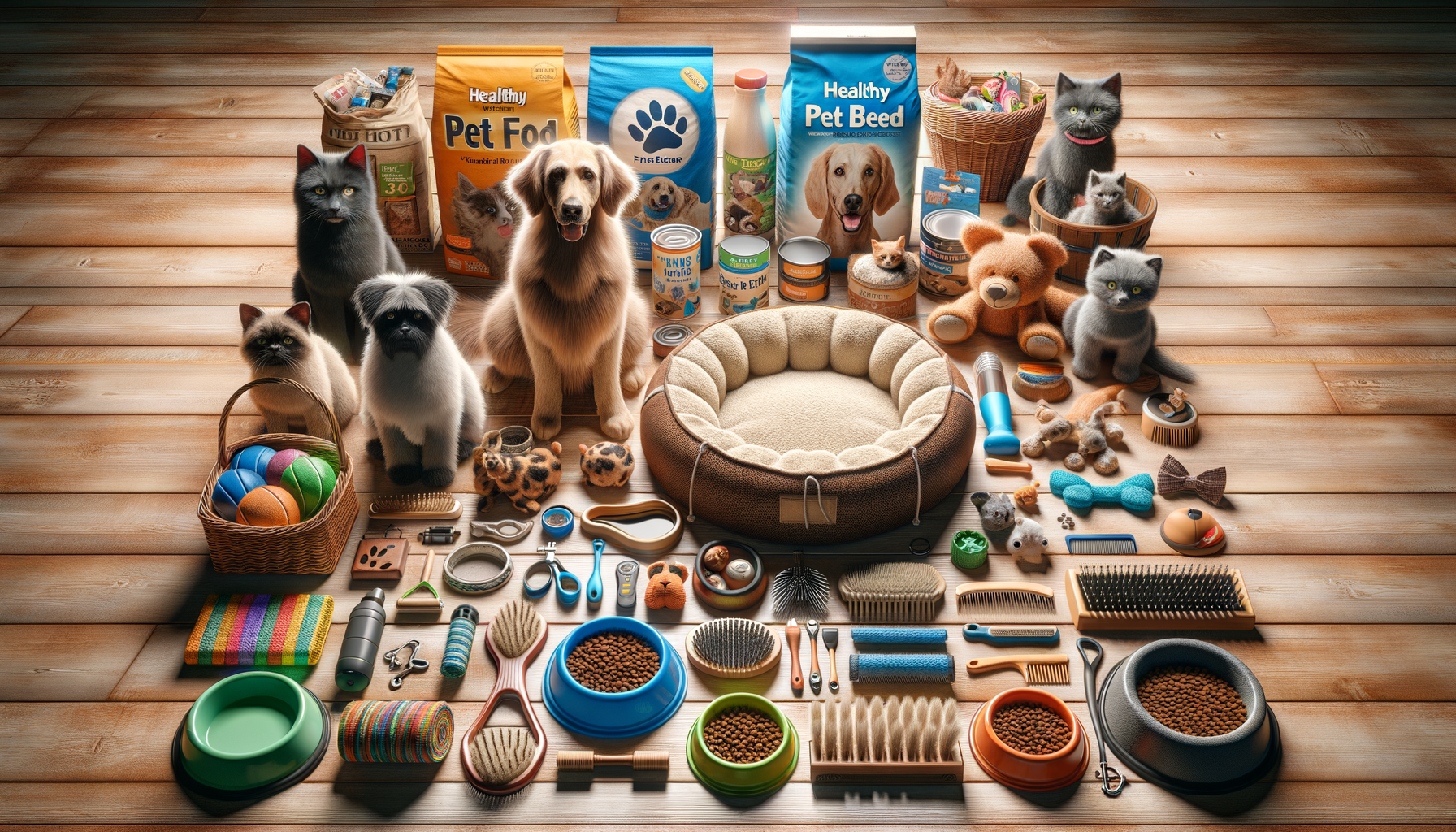
Essential Care for Your Furry Companion
Nutrition: The Foundation of Pet Health
Nutrition plays a pivotal role in the overall well-being of pets. Just like humans, pets require a balanced diet to maintain health and vitality. Pet food comes in various forms, including dry kibble, wet canned food, and raw diets. Each type has its benefits: dry kibble is convenient and helps with dental health, while wet food offers hydration and is often more palatable for picky eaters. Raw diets, though more complex to prepare, can provide a natural and holistic approach to feeding.
When choosing pet food, it’s crucial to consider the specific needs of your pet. Factors such as age, size, breed, and any health conditions should guide your choices. For instance, puppies and kittens require more protein and fat for growth, while senior pets might need fewer calories due to a slower metabolism. Consulting with a veterinarian can provide personalized recommendations to ensure your pet’s dietary requirements are met.
Additionally, the rise of specialty diets, such as grain-free or limited ingredient recipes, caters to pets with allergies or sensitivities. These options can help mitigate issues like itchy skin or digestive troubles. Ultimately, a well-balanced diet is the cornerstone of a pet’s health, contributing to a longer, happier life.
Comfort: Bedding and Housing Solutions
Providing a comfortable resting place is essential for any pet. The right bed can offer support and warmth, contributing to a pet’s overall sense of security. Pet beds come in various shapes and sizes, from plush pillows to orthopedic foam mattresses designed to alleviate joint pain in older animals. For pets that enjoy burrowing, cave-style beds offer a cozy retreat.
In addition to indoor beds, outdoor housing solutions are important for pets that spend time outside. Doghouses should be weather-resistant and insulated to protect against the elements. Cats, on the other hand, may enjoy a perch or window hammock for sunbathing and watching the world go by.
Moreover, pets with specific needs, such as arthritic dogs or cats with mobility issues, can benefit from specialized beds that provide extra support and comfort. Heated beds are another option for pets living in colder climates, offering warmth and soothing relief to sore muscles.
Ultimately, investing in the right bedding and housing solutions not only enhances a pet’s comfort but also supports their physical and emotional well-being.
Entertainment: Toys and Enrichment Activities
Toys and enrichment activities are crucial for a pet’s mental and physical health. Interactive toys, such as puzzle feeders or treat-dispensing balls, engage a pet’s natural instincts and provide mental stimulation. These types of toys are particularly beneficial for intelligent breeds that require constant engagement to prevent boredom and destructive behaviors.
For dogs, chew toys are a staple, offering both entertainment and dental health benefits. Durable rubber toys or natural bones can satisfy a dog’s instinct to chew while keeping their teeth clean. Cats, on the other hand, may enjoy feather wands, laser pointers, or catnip-filled toys that cater to their hunting instincts.
Enrichment activities extend beyond toys and can include training sessions, agility courses, or even simple games like fetch. These activities not only provide physical exercise but also strengthen the bond between pet and owner. Regular playtime is essential for maintaining a pet’s happiness and preventing issues such as anxiety or obesity.
Incorporating a variety of toys and activities into a pet’s routine ensures they remain engaged, healthy, and content.
Health: Grooming and Hygiene Essentials
Maintaining a pet’s hygiene is vital for their health and comfort. Regular grooming helps prevent matting, reduces shedding, and allows for early detection of skin issues or parasites. Different pets have different grooming needs: long-haired breeds may require daily brushing, while short-haired breeds might only need weekly grooming.
Bathing is another essential aspect of pet hygiene, though the frequency depends on the pet’s lifestyle and coat type. Specialized shampoos are available for pets with sensitive skin or allergies, ensuring that their skin remains healthy and irritation-free.
Nail trimming, ear cleaning, and dental care are also crucial components of a grooming routine. Overgrown nails can cause discomfort and lead to mobility issues, while ear cleaning helps prevent infections. Dental hygiene is often overlooked but is essential for preventing periodontal disease, which can lead to more serious health problems.
Investing in quality grooming tools and establishing a regular grooming routine can significantly enhance a pet’s quality of life, keeping them healthy and comfortable.
Safety: Collars, Leashes, and Identification
Ensuring a pet’s safety is a top priority for any pet owner. Collars and leashes are fundamental tools for keeping pets secure during walks and outings. When selecting a collar, it’s important to choose one that fits properly and is made of durable materials. Reflective or LED collars can enhance visibility during nighttime walks, providing an extra layer of safety.
Leashes come in various styles, including retractable, standard, and hands-free options. Each type offers different benefits: retractable leashes provide freedom to explore, while standard leashes offer more control. Hands-free leashes are convenient for active owners who enjoy jogging or hiking with their pets.
Identification is another critical aspect of pet safety. Microchipping offers a permanent form of identification, increasing the chances of a pet being reunited with its owner if lost. Additionally, tags with the pet’s name and contact information are essential for quick identification.
Investing in quality safety gear ensures that pets remain secure and protected, giving pet owners peace of mind.


